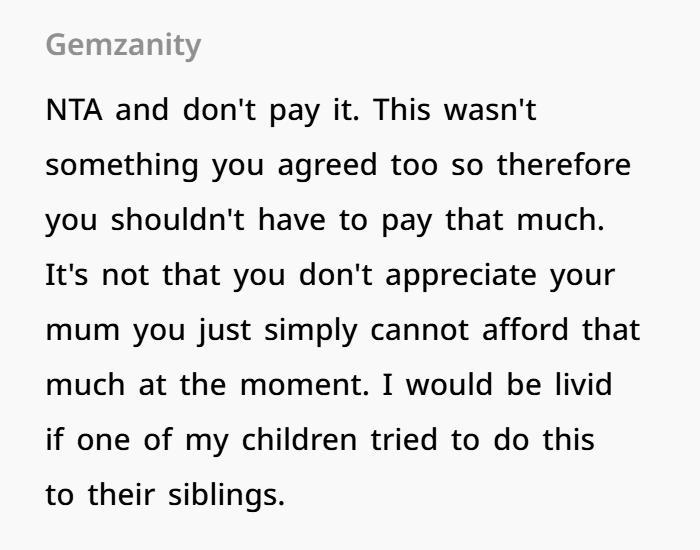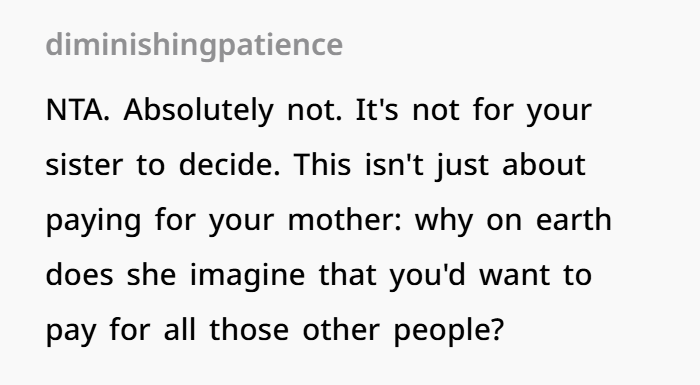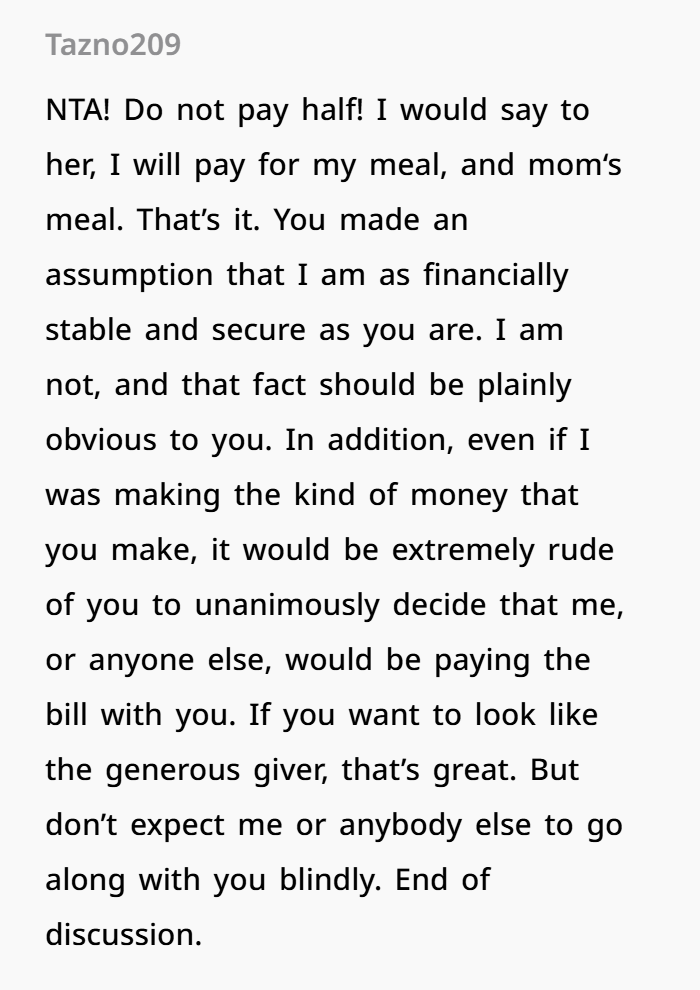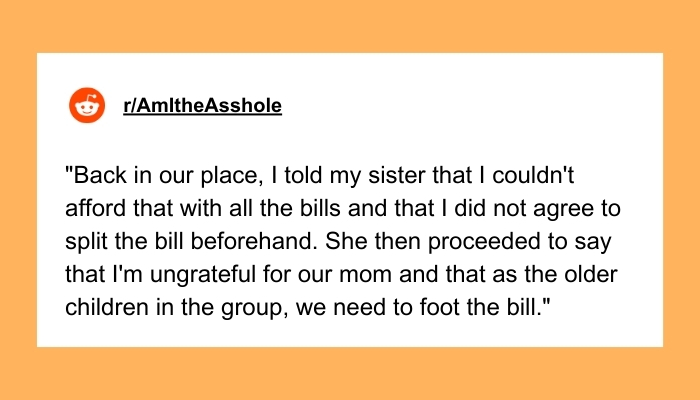Person Finds Out After Dinner That They’re “Treating The Table,” Refuses To Pay
You’ve probably heard the phrase, “There’s no such thing as a free lunch.” But that’s not always true—especially if someone else is kind enough to pay your bill at a restaurant. Unfortunately, that’s not something you can count on, especially during today’s rising living costs. With inflation and tight budgets, dining out has become a luxury, not a regular event.
In most cases, adults handle restaurant bills by splitting the check or paying their share. This is a smart move when it comes to personal finance and family budgeting.
Recently, one person went out for a Mother’s Day dinner with a large group of family members. They assumed everyone would cover their own cost, like usual. But when the bill came, they were shocked. It turned out that they—and their older sister—were expected to cover the entire check as a “treat” for the group.
Now, this person is stuck. They feel it’s unfair, and they haven’t paid yet. But they’re unsure what the right move is.
This situation raises important questions about financial responsibility, family expectations, and money-saving tips. Is it fair to be asked to cover everyone’s meal without a heads-up? Should you speak up when it affects your personal budget?
Read for more info Reddit
Breaking bread with family is meant to be a joyous occasion
But a Mother’s Day dinner turned into drama when one person found out they’d be footing half the bill, after the fact
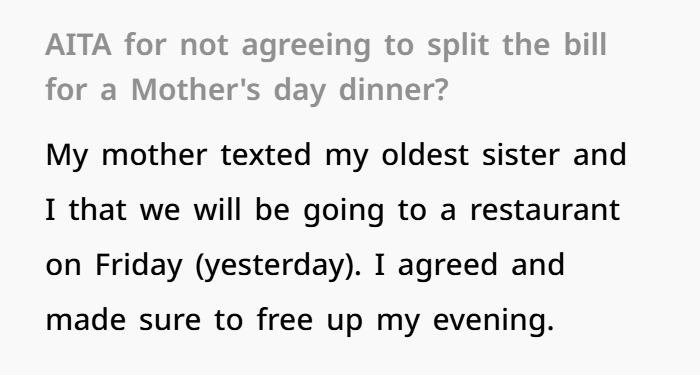
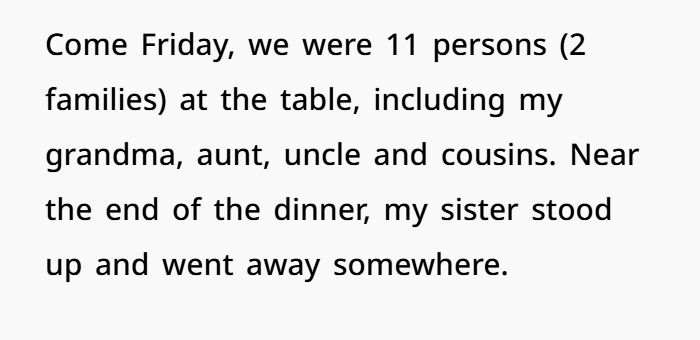
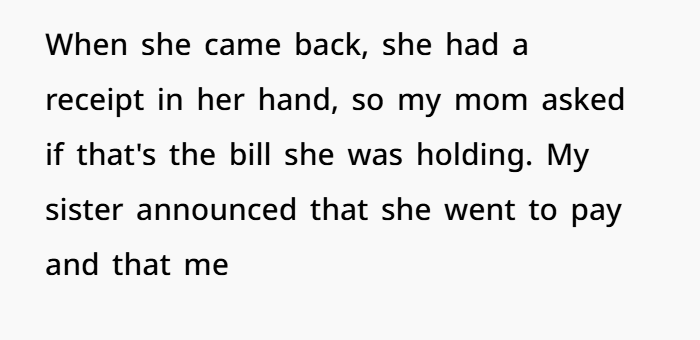
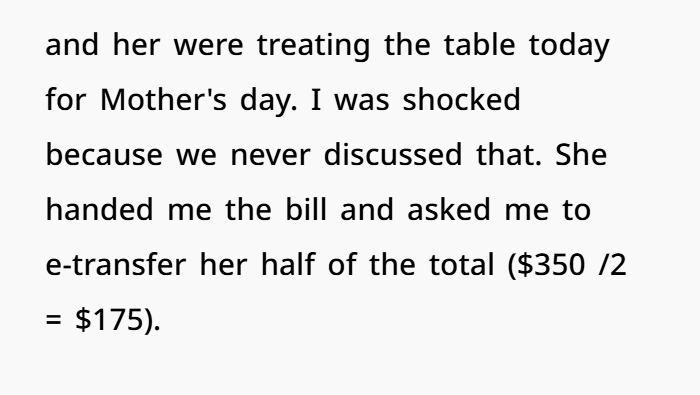

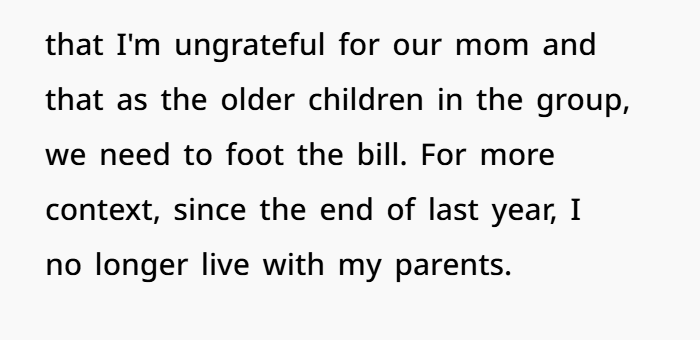

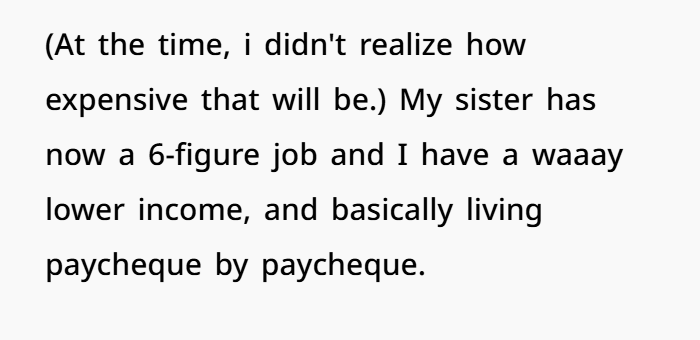
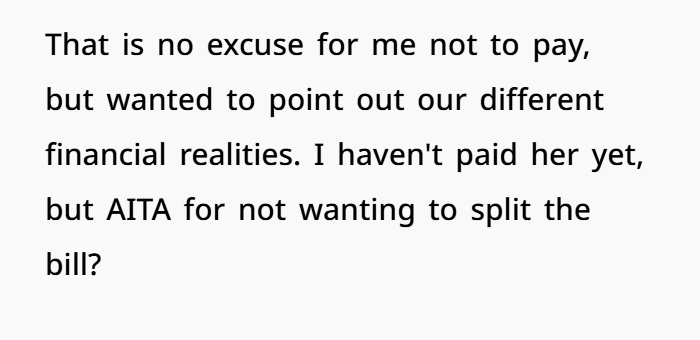
What to do when the bill gets passed around like a hot potato, according to the experts
Most of us have been there—you’re out with a group at a nice restaurant, laughing, enjoying great food and drinks. But then the check arrives. It’s long, expensive, and full of dishes and drinks everyone ordered. Suddenly, the fun slows down as the bill makes its way around the table.
People pull out their phones, trying to calculate what they owe. Splitting the bill should be simple, but sometimes it gets complicated. What if someone had lobster and wine, and someone else just had a salad and water? Is it still fair to divide the cost evenly?
Restaurant Bill Etiquette: What the Experts Say
According to etiquette experts, the rules depend on the situation.
Rosalinda Randall, a well-known etiquette coach, told Bored Panda that sometimes it’s just easier to pay your share without making a scene. If you didn’t speak up early, don’t cause drama. “Consider it an investment in a good time with people,” she advises. “Cut back on luxury items like specialty coffee for a few days to balance things out.” This is a practical money-saving tip for handling awkward moments.
Still, not everyone can afford to pay more than they planned. If that’s the case, there are ways to handle it politely. You can say you already had a late lunch or that you’re on a strict diet, which is why you’re not ordering much. But etiquette says you shouldn’t ask to share someone else’s meal—that’s a clear no.
Special Events May Have Different Rules
When it comes to special occasions like Mother’s Day, birthdays, or celebrations, the rules can change. Usually, the person who sends the invite is the one who covers the cost.
“If I invite everyone to a party at a restaurant, and I want them to enjoy themselves, I should be prepared to pay,” says Diane Gottsman, owner of The Protocol School of Texas.
That said, some guests may offer to pay their own way—and that’s okay too. Just make sure to talk about it in advance.
And what if it’s your birthday and your friends invite you out? Then the group typically pays for you. “They usually chip in for the birthday person and split the rest of the bill,” says etiquette coach Myka Meier, founder of Beaumont Etiquette.
“Don’t let an off-balanced split check split up the relationship”: an etiquette expert’s advice
Sometimes, the issue of splitting the bill isn’t just about money—it’s about deeper family dynamics and past experiences.
In one recent situation, a younger sibling was surprised when their older sister expected them to pay half the check for a big Mother’s Day dinner. According to etiquette expert Rosalinda Randall, this kind of misunderstanding might actually stem from long-standing family tension.
Financial Expectations Between Siblings
“Family money issues can be complicated,” Randall explains. She suggests that because the younger sibling once moved in with the older one—under pressure from their parents—it might have changed the relationship. The older sister may now feel “in charge” or more important. This could lead her to assume she gets to make decisions, like who pays for dinner.
Randall believes the older sibling might have thought her younger sister would be excited to treat the family or could afford it. Or maybe, because she’s older, she feels she can boss her sibling around. But that’s not fair, and it’s not okay to make assumptions or use guilt to get someone to pay.
Avoiding Guilt and Shame in Family Finances
“It’s sad when someone uses guilt or shame to pressure a family member,” Randall told Bored Panda. “Maybe the older sister pays the bill to show love for their mom, but that doesn’t mean the younger sibling doesn’t love her just as much.”
This situation highlights the importance of setting financial boundaries and having open communication. Randall recommends talking things out calmly and acting like adults—not just siblings. This helps avoid future confusion and resentment.
The Right Way to Handle It
When asked what she would say to the older sister, Randall’s answer was clear:
“If you assumed and pressured your sibling, the right thing to do is take responsibility. Only ask for the money that was spent on your mother’s meal. Maybe it was an innocent mistake, but your sibling is an adult. If you treat them like a child, it will hurt your relationship.”
She adds that the younger sibling has every right to refuse to pay for the rest of the group. Still, if they can afford it, they might choose to pay just this once to avoid more family conflict—but make it clear that it won’t happen again without prior agreement.
Some were surprised the bill wasn’t higher and they wanted more information
